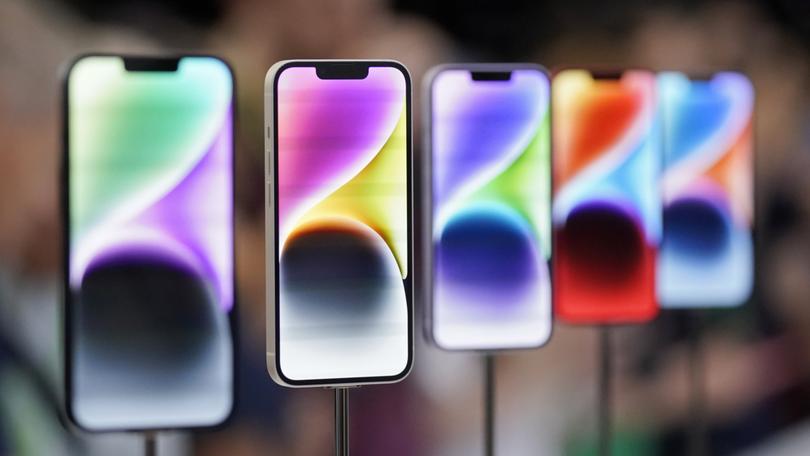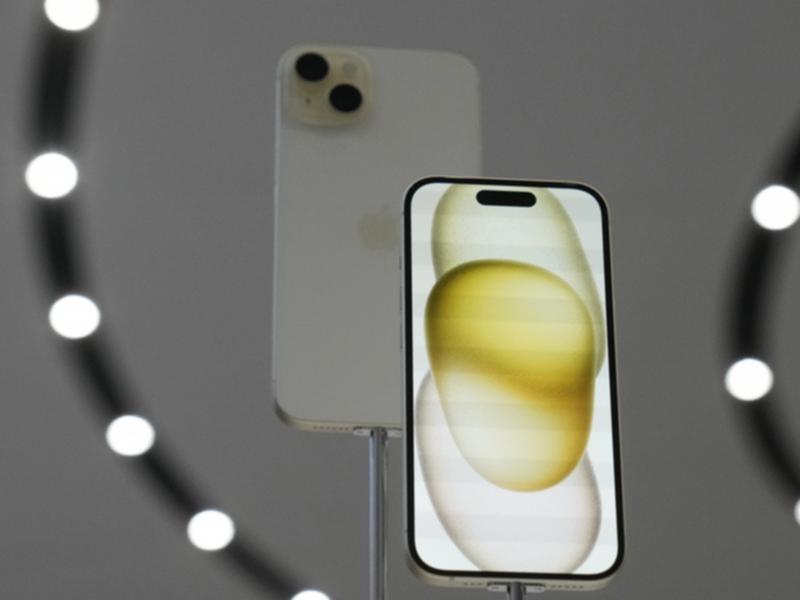How will Apple’s antitrust lawsuit with the Department of Justice impact the tech giant’s operations?
The antitrust battle with Apple may drag on for years. But even if the company wins, it could still suffer the consequences.

Hardly a month goes by without antitrust regulators taking another swipe at big-tech firms. On March 21, it was Apple’s turn.
America’s Department of Justice along with attorneys-general from 16 states sued the company. The case alleges that the firm uses its monopoly position in the smartphone market to “thwart” innovation, “throttle” competitors and discourage users from buying rival devices.
Apple says the lawsuit is wrongheaded and that it will “vigorously defend” itself. Nonetheless the case marks an escalation in a regulatory onslaught against the once-charmed iPhone-maker.
Sign up to The Nightly's newsletters.
Get the first look at the digital newspaper, curated daily stories and breaking headlines delivered to your inbox.
By continuing you agree to our Terms and Privacy Policy.The suit is broader than those trustbusters have previously brought against Apple. Those have tended to focus on the company’s App Store, which is the only one allowed on its devices and from which it collects a 30 per cent fee on most in-app purchases.
The latest case, however, takes issue with the way Apple operates its entire business.
It cites several examples of the firm supposedly stifling rivals as a way to bolster its own dominance. These include: blocking super-apps, which bring together multiple mini-services such as payments and messaging; preventing access to cloud-based gaming apps (which could encourage users to buy cheaper, less snazzy smartphones because games run well in the cloud); and ensuring poor service when rival gadgets, such as smartwatches, interact with iPhones.
Apple’s share price fell by about 4 per cent on the news.
The case adds to Apple’s other legal headaches. The EU’s Digital Markets Act, which came into effect on March 6, forced the company to make changes to the App Store.
They included allowing developers of apps for the iPhone to both charge users and distribute their apps without using Apple’s apparatus, bypassing its 30 per cent commission. Apple’s new system still collects hefty fees from app developers. Regulators in Brussels are reportedly preparing to investigate.
Apple may also be forced to open up the App Store to outside payments in America as a result of a recent ruling to a suit brought by Epic, a video-game maker.
Apple has floated a plan to comply. But Epic, as well as big-tech firms such as Meta and Microsoft, have filed complaints with the federal judge, arguing that it would still make alternative payments prohibitively hard.

In a separate case, the DoJ has sued Google for deals it has struck with Apple and other firms to make it the default search engine on their devices. A loss could deprive Apple of $US20 billion ($30b) each year in almost pure profit. Google denies wrongdoing.
Apple will take solace from the fact that the government has flubbed some of its recent attempts to defeat big tech in court.
America’s Federal Trade Commission, another regulator, tried to challenge Microsoft’s acquisition of Activision Blizzard, a video-game maker, but failed.
It could not halt Meta’s purchase of Within, a virtual-reality fitness company. As Matt Perault, director of the University of North Carolina’s Centre on Technology Policy, says, “It may be easy to write antitrust op-eds and hold hearings, but actually winning cases is hard.”
The battle with Apple may drag on for years. But even if the company wins, it could still suffer the consequences.
Drawn-out legal turmoil can be a distraction for top executives. It can hurt the firm’s brand. Already the company has its work cut out trying to reinvigorate iPhone sales.
If it loses, Apple could probably shrug off a fine. It will worry more that the court would try to break open its unique ecosystem in which its 2 billion devices, and the services they provide, reinforce demand for each other.
Apple defends this so-called walled garden, saying it is vital for preserving users’ safety and privacy.
Whether that is true or not, the firm’s business could suffer if it is forced to make its iPhones more interoperable with rivals’ devices, such as smartwatches and VR headsets, rather than its own.
As it is, technology never stands still. If big tech is dominant now, it may become even more so thanks to “generative” artificial intelligence, which favours firms that have access to oceans of data, cash and it talent.
The “Magnificent Seven” (Alphabet, Amazon, Apple, Meta, Microsoft, Nvidia and Tesla) account for 29 per cent of the market value of the S&P 500, up from 20 per cent at the start of 2023. This is largely thanks to the AI boom.
Notwithstanding the trustbusters’ scrutiny, the giants are manoeuvring to stay ahead.
This week it emerged that Apple is in talks with Google, owned by Alphabet, to let the search giant’s Gemini gen-AI model power some iPhone features, building on both companies’ search deal.
American antitrust regulators are focused on the perceived sins of the past. Increasingly, that sounds like yesterday’s war.
